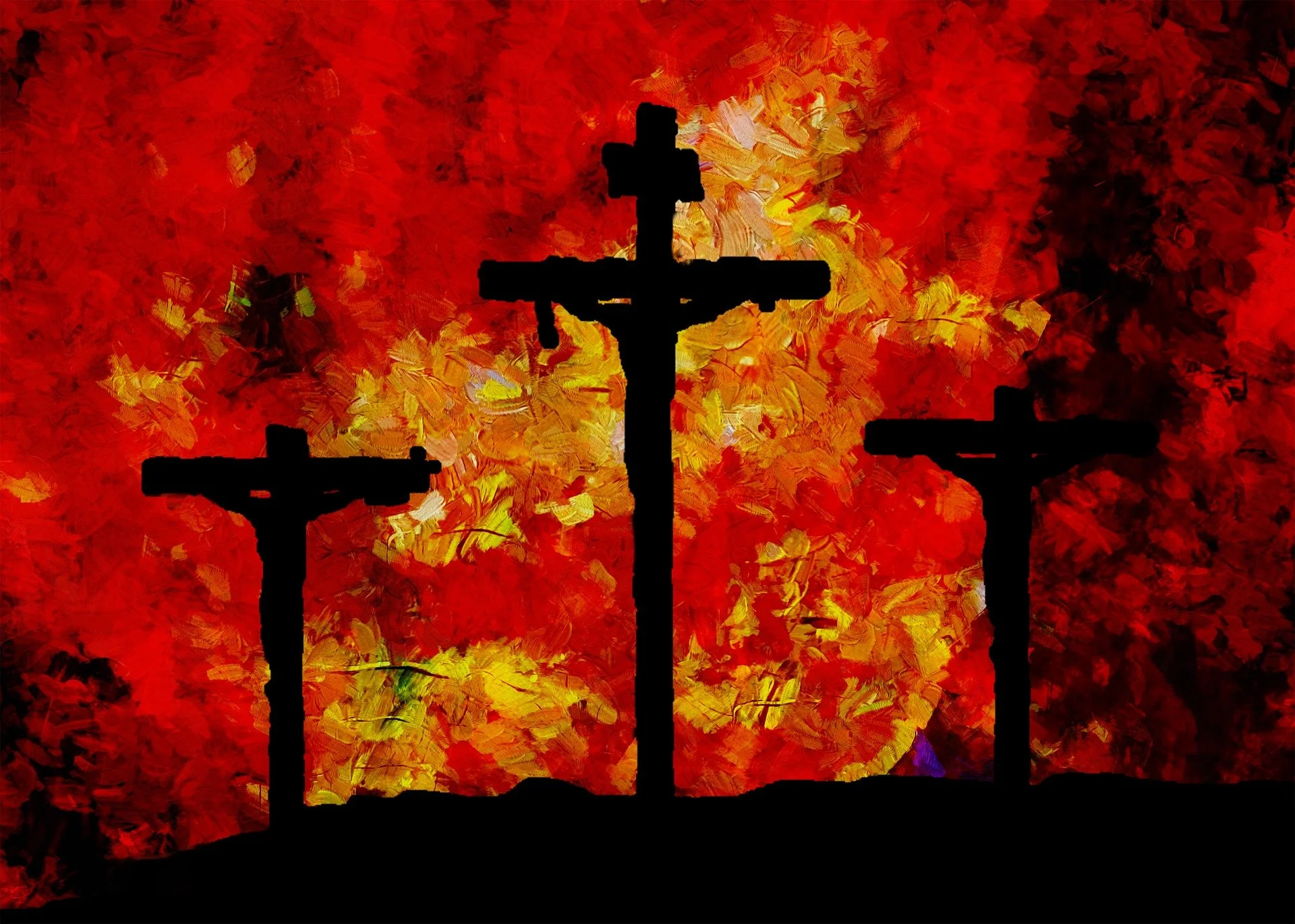Mulling it Over - Romans 8:3-4 - Easter Thoughts
When I study scripture, one of the first things I do is exactly what I do here with you, I take the verses I am studying apart. Words are important. How those words are used is important. Obviously, we are looking at English words, not the original language of Hebrew or Greek, so the words have already been translated into a form for us. It would definitely be advantageous if we could read the Bible in it’s original language to truly understand the nuances and meanings of some of the words, but I trust God. I know that the book that He allowed to be translated into our language is just as true and powerful as the original documents that were penned so many, many years ago.
Last month we looked at the first two verses of Romans 8, which reminded us that we do not stand condemned if we are in Christ Jesus, and the law of the Spirit of Life in Christ Jesus has set us free from the Law of sin and death. Let’s continue our study by looking at verses 3 and 4.
“3 For what the Law could not do, weak as it was through the flesh, God did: sending His own Son in the likeness of sinful flesh and as an offering for sin, He condemned sin in the flesh,
4 so that the requirement of the Law might be fulfilled in us, who do not walk according to the flesh but according to the Spirit.”
As we move into Easter weekend and contemplate what our Lord Jesus did for us, it is apropos that we look over these two verses.
Let’s change it up just a little bit this week and instead of going through this phrase by phrase, let’s look at what we can learn about the Law in these two verses.
1 - The Law was weak - The Law, given in the Old Testament to Moses on the mountain, was given as both a mirror and a shadow. It was given as a mirror to reflect sin. The whole point of the Law was to point out and remind people they are sinners, separated from a Holy God.
Image by Med Ahabchane from Pixabay
The Law was also a shadow of the spiritual reality. The reality is that we cannot save ourselves. No matter how much we try to obey the law, we still fall short of God’s holy identity. Romans 3:23 says, “All have sinned and fall short of the glory of God.” There is only one way to have right standing with this Almighty being and that is through the sacrifice of blood. That sacrifice came through His son, Jesus.
2 - The Law was flesh - Everything that the law encompassed in the Old Testament had to do with deeds of the flesh. The sacrifices, the portions, the building, the lineage, the priesthood, the garments, the tabernacle and temple furniture and ornamental pieces, the commandments…all of it had to do with this life, in this flesh. Even today, we are all about doing, or what can be done or accomplished in our flesh.
Image by roxanawilliams1920 from Pixabay
Don’t get me wrong, doing is good and it absolutely should be a part of our lives as human beings and as Christians. However, the ability to save ourselves has nothing to do with our flesh. Even Paul in the book of Galatians reprimands the Jews who are trying to add to the gospel by telling new converts to Christ they have to be circumcised. (See Galatians 3 and 4.)
3 - The Law and the Flesh are associated with sin - God created Adam and Eve with fleshly bodies, but in the Garden of Eden that flesh was meant to be enjoyed, and used to take care of the animals and all the things that God had created. Sin came about when Eve, tempted by Satan in his serpent form, wanted to taste the fruit that was forbidden. It was the desire of the flesh that caused her and her husband to fall. If they would have immediately ran to their loving Father with their fleshly desire, not only would they have remained pure, but then sin wouldn’t have been given reign in the flesh. As it was, they were cast out of the Garden and became painfully aware of now frail and sinful their flesh was.
Image by Jeff Jacobs from Pixabay
From that first connection of flesh to sin, came about the need for the Law, a shadow of what was to come in the fleshly form of Jesus Christ who would take away the sins of the world.
4 - The Law was fulfilled in the person of Jesus Christ - God in His great goodness and fathomless love provided! Isn’t it amazing that the very God with whom we in our flesh, broke covenant, was prepared from before the foundation of the world to provide the needed, perfect and unblemished lamb to be a sacrifice for our darkened hearts. Not only did he provide the perfect sacrifice, but it came in the person of His own son, Jesus Christ. In this, He and the Father were one. The son did what the Father wanted, because the Son loved the Father and loved us.
Image by Raheel Shakeel from Pixabay
Christ was made flesh and dwelt among us…it is important that we understand He had to take on flesh for His sacrifice to fulfill the requirement of the Law. The Law required a fleshly sacrifice particularly for the atonement of sin. What was a shadow in the Old Testament became a reality in the New Testament. The Old Covenant was set aside for the New Covenant.
What a blessing is ours, for we were born in the time of the New Covenant, or the New Testament. We are not dependent on our own flesh to be one with God. The requirement of the law is fulfilled in our flesh because Jesus became flesh, and was the perfect sacrifice for all. Now we live, not according to the law of the flesh, but the law of the Spirit.
I hope you enjoyed this week’s post. Have a beautiful Easter weekend! Until next time, keep seeking Him.












